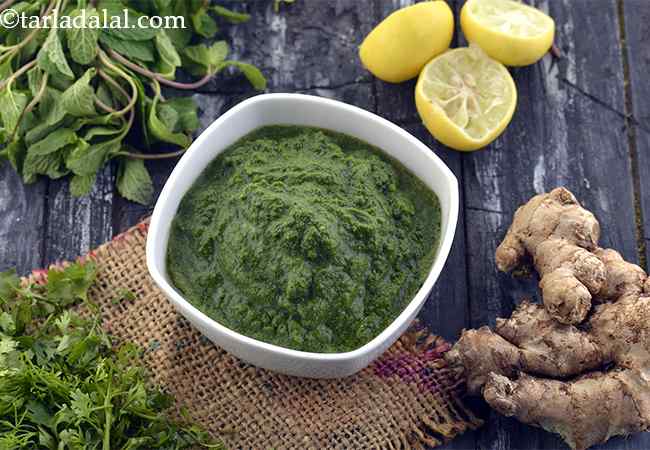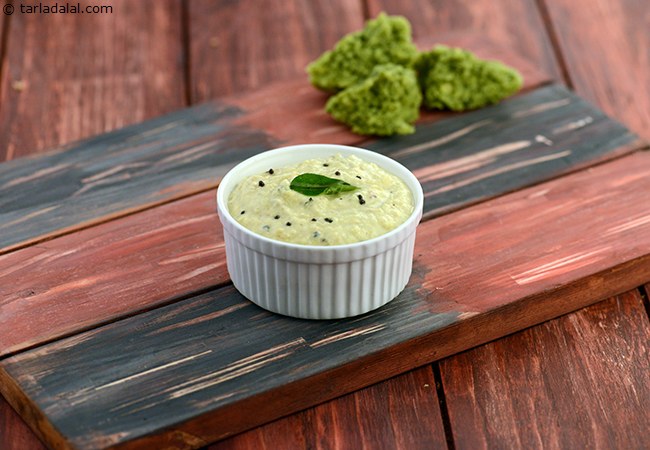96 calories for 1 chilla of Lauki Chilla, Bottle Gourd Doodhi Cheela, Cholesterol 1.1 mg, Carbohydrates 9.2g, Protein 3.3g, Fat 5.1g. Find how much fibre, iron, calcium, zinc, magnesium, phosphorus, sodium, potassium, folic acid is present in Lauki Chilla, Bottle Gourd Doodhi Cheela
See Lauki Chilla recipe | healthy bottle gourd Indian pancake | with 18 images.
lauki chilla is a Gujarati breakfast. Learn how to make healthy bottle gourd Indian pancakes.
Chilla, the Indian pancake, is so versatile that you can add any combination of ingredients to the basic besan batter to come up with something new like lauki chilla that tastes different!
This Lauki Chilla is one such version that you will definitely fall in love with. With the succulence of lauki, the pleasant tanginess of curds and the warmth of chilli powder, these pancakes are sure to make your breakfast or supper very special indeed.
It also happens to be a no-fuss, no-sweat doodhi pudla recipe, which instantly topples the votes in its favour!
With extremely low levels of sodium, this doodhi used in lauki chilla is highly suitable for those with high BP. It helps reduce blood cholesterol levels and regulate blood pressure and ensures a proper blood flow to heart and they're onwards to all parts of the body.
96 calories for one lauki chilla making it a healthy snack to have at any time.
You can also try other chilla recipes like Sprouted Moong and Methi Chilas or High Fibre Chilas .
Enjoy with lauki chilla recipe | doodhi pudla | cheela rich in Folic Acid, Thiamine, Protein, Fiber, Magnesium | step by step photos.
Is Lauki Chilla healthy?
Yes. Lauki chilla is made fron doodhi, besan, curds and we suggest you use coconut oil to cook with.
What's good in the pudla.
Doodhi (bottle gourd, lauki) : With extremely low levels of sodium, this doodhi is highly suitable for those with high BP. It helps reduce blood cholesterol levels and regulate blood pressure and ensures a proper blood flow to heart and they're onwards to all parts of the body. It helps prevent acidity and good for diabetics. See the 10 benefits of bottlegourd article for complete information.
Besan : Besan has more good fat than whole wheat flour and also higher protein content. Rich in complex carbohydrates and with a low glycemic index, besan is good for diabetics too. Besan is high in Folate or folic acid, which is important for rapid growth and multiplication of red blood cells and white blood cells (WBC) in the bone marrow. See 10 detailed benefits of besan and why it's good for you.
Curd + Low fat Curds, hung curds : Curds help in digestion as it has very good bacteria. Probiotics in curds acts as a mild laxative but, in case of diarrhoea and dysentery, it is a boon, if curd is used with rice. Curd is one of the richest sources of protein, calcium and minerals. They help in weight reduction, good for your heart and build immunity. Being low in sodium, it is safe to be eaten by individuals with high blood pressure. The only difference between curds and low fat curds is the fat level. Note that one cup curds gives half cup hung curds. Read the benefits of curds to include in your daily diet.
Coconut Oil : Use cococnut oil instead of processed seed oil in the recipe. Coconut oil is a medium chain triglycerides (MCT’s). Unlike other fats, they go directly from the gut to the liver. From here, they are then used as a source of energy. As the calories in MCT’s are used straight away, they are less likely to be stored as fats in the body. MCT's have shown to improve your brain and memory function, they also give a boost to your energy levels and improve your endurance. The MCT in Coconut oil reduces the LDL cholesterol (bad cholesterol) while increasing the count of HDL cholesterol, maintaining normal blood pressure and good for diabetics. See detailed benefits of coconut oil.
Can Diabetics, Heart patients and over weight individuals have Lauki Pudla?
Yes. With extremely low levels of sodium, this doodhi is highly suitable for those with high BP. It helps reduce blood cholesterol levels and regulate blood pressure and ensures a proper blood flow to heart and they're onwards to all parts of the body. It helps prevent acidity and good for diabetics.
Use cococnut oil instead of processed seed oil in the recipe. Coconut oil is a medium chain triglycerides (MCT’s). Unlike other fats, they go directly from the gut to the liver. From here, they are then used as a source of energy.
Can healthy people have lauki chilla ?
Yes.
What chutney should i have my pudla with ?
Have this with nutritious green chutney recipe which has ZERO sugar used in it made with mint leaves, onions and coriander or green chutney recipe. Coconut based options are healthy coconut chutney made from coconut and coriander and coconut coriander green chutney for idlis dosa uttapam vada.

Green Chutney, How To Make Green Chutney Recipe
Or
Serve it with a healthy coconut chutney.

Coconut chutney
Lauki Pudla are rich in below macronutrients, vitamins and minerals given in descending order (highest to lowest).
- Folic Acid (Vitamin B9): Folic acid is an essential vitamin required throughout pregnancy. Folic acid rich Indian foods (kabuli chana, chana dal, yellow moong dal, urad dal, tooval dal, til ). 11% of RDA.
- Vitamin B1 (Thiamine) : Vitamin B1 protects nerves, helps in carbohydrate metabolism, prevents heart diseases and helps produce red blood cells. 10% of RDA.
- Protein : Protein is required for the managing the wear and tear of all cells of the body. Have protein rich Indian foods like paneer, curd, Greek yoghurt, tofu, almonds, sprouts, chana, rajma, chick peas, quinoa, buckwheat ). 10% of RDA.
- Fiber : Dietary fiber reduce the risk of heart disease, prevent the spike in blood sugar levels and hence super for diabetics. Consume more fruits, vegetables, moong, oats, matki, whole grains. 10% of RDA.
- Magnesium : Magnesium is required for formation of bones and teeth. It helps in the metabolism of calcium and potassium. % of RDA. magnesium rich Indian foods like leafy vegetables (palak, broccoli, kale), pulses ( rajma, chawli, moong ), nuts (walnuts, almonds) , cereals ( jowar, bajra, whole wheat flour, dalia). 6 % of RDA.